Fashion designer Meenakshi Sharma describes her venture as one that translated from “a deep respect for the planet”.
The 34-year-old is the founder of Use Me Works, an upcycling venture that she has been running since 2011. The business took seed as a college dissertation project during her graduate studies at the Pearl Academy of Fashion.
In the years to come, she would soon discover how the simple idea of transforming fabric waste into items with a purpose, as well as championing the concept of upcycling, would shape the rest of her life.
“People always complain about the state of things in Delhi and the looming problem of the city’s waste. But how are we working to change it?” is the question she is looking to address through the venture.
She says upcycling wasn’t a “random” idea, but rather stemmed from a series of childhood anecdotes, which further piqued her love for conserving the planet.
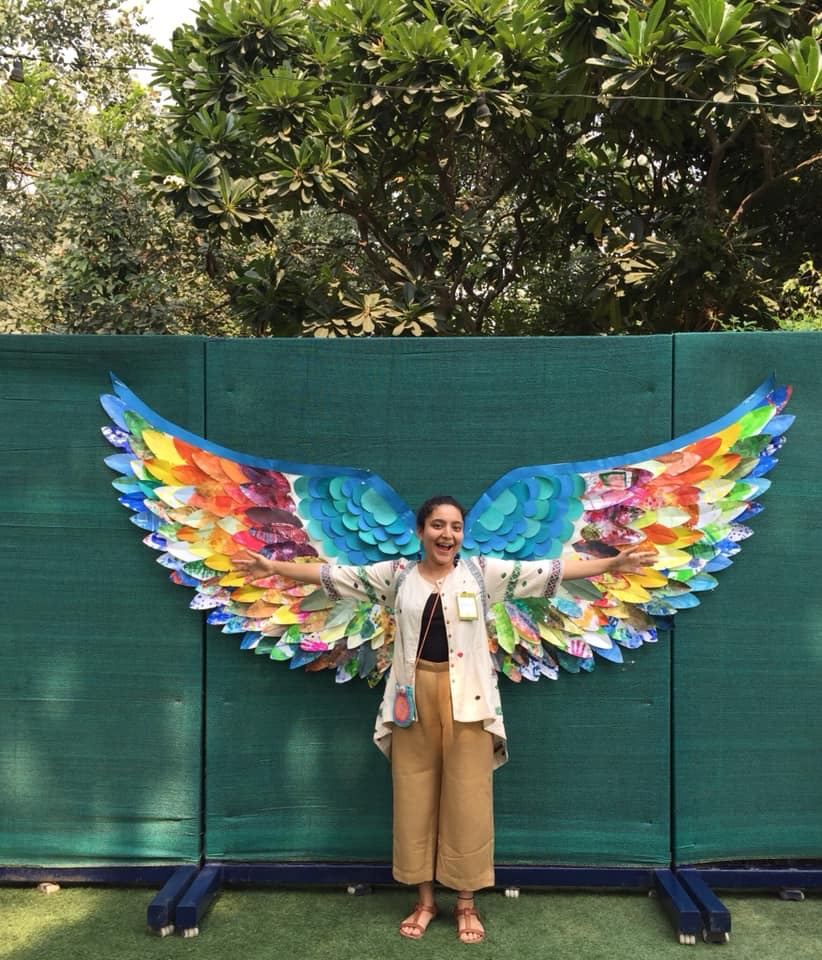
‘I grew up learning to value resources.’
“My parents hail from a village in Jammu. As kids, we were taught to respect the resources around us. The home was a place where nothing was considered waste,” she reminisces. “My dad would come up with creative ways to repurpose old things and turn these into beautiful DIY items. I would watch and observe.”
While she chose a career in fashion and loved keeping up with the latest trends, site visits to neighbouring factories and industries during her college days introduced Meenakshi to the other side of the fashion industry — tonnes and tonnes of fabric waste.
“I was aghast to see the other side of the story. I decided that if I had to choose a career after college, it would be a continuation of my project, which was to upcycle fabric waste into beautiful items,” she adds.
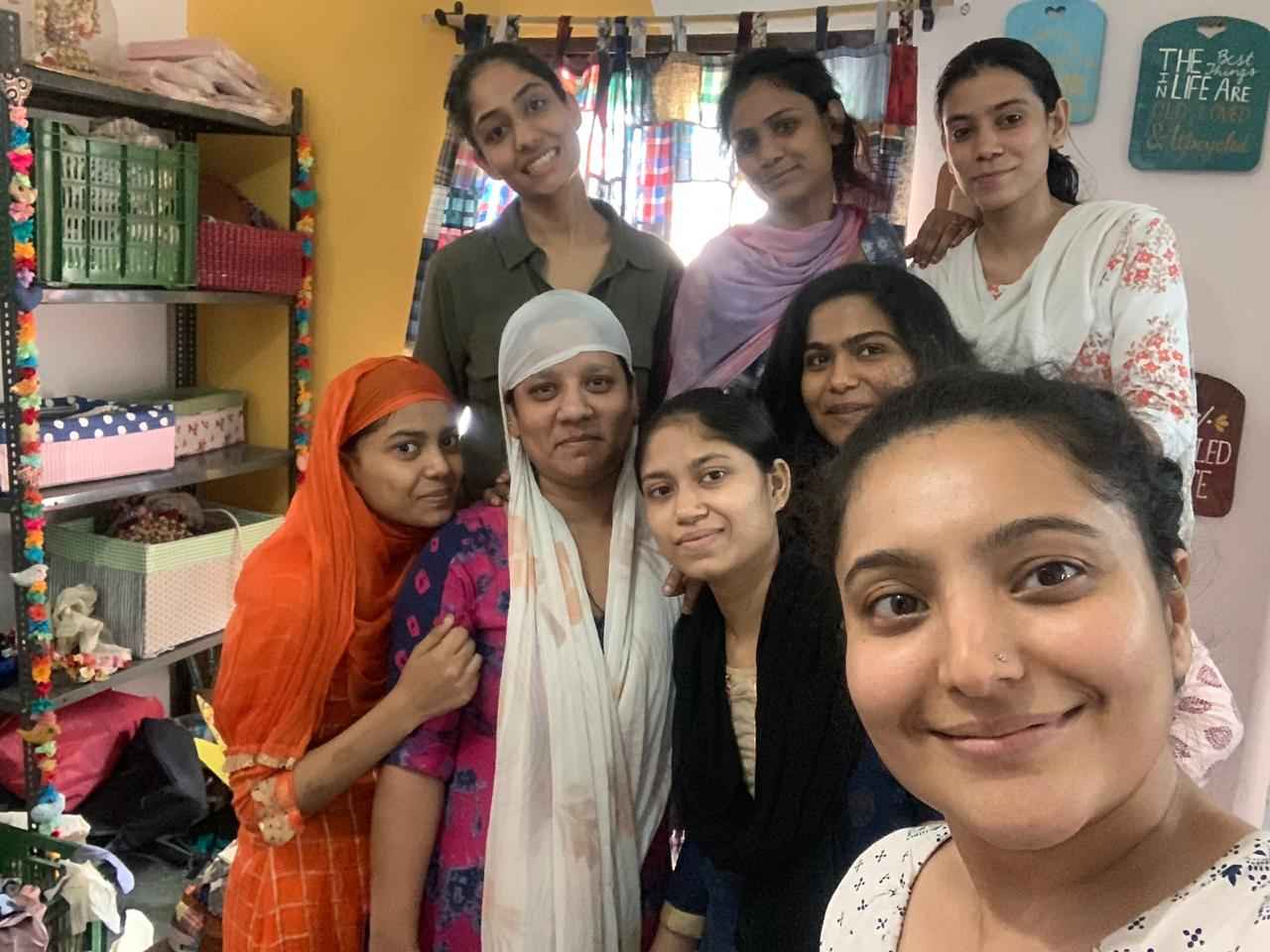
However, this time, Meenakshi was intent on her project inspiring and empowering women from poor backgrounds and giving them a chance to earn.
Use Me Works straddles the line between upcycling and promoting the concept of slow fashion.
The waste warriors of Delhi
Near the Qutub Minar in the village of Andheria Mor in Chattarpur, 30 women sit hard at work, stitching and sewing. The room is not bigger than a studio suite, around 450 sq-ft, and filled with bags of fabric waste from neighbouring factories.
About why she chose the area as her workplace, she says, “These women do not get much exposure, nor time apart from their home chores and taking care of the family. Having them be a part of Use Me Works and upcycling gives them a chance to work and earn.”
“We set up the workshop in their condo itself, so they wouldn’t need permission to travel far. They earn around Rs 5,000 to Rs 10,000 a month,” she adds.
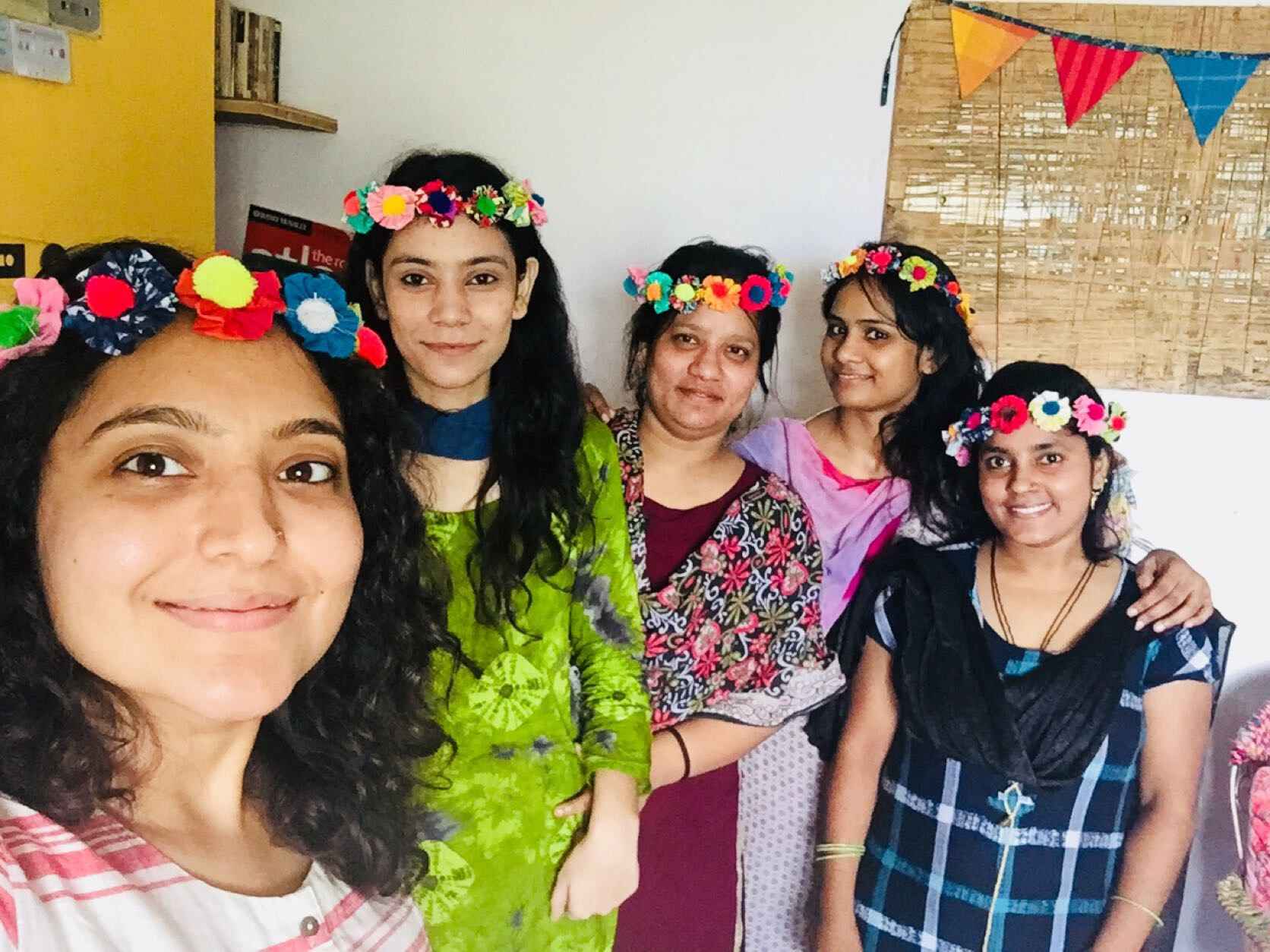
Priyanka, who has been associated with Use Me Works for two years, says working here has changed her life in many ways.
“I was very self-conscious when I started, but along the way have gained many skills and knowledge. Meenakshi ma’am has taught me so much. She believed in me and gave me many responsibilities that have now helped me gain confidence. It’s like we’re all part of one big family. The atmosphere here does not feel like an office, and I enjoy it quite a bit,” she says.
As one gazes around the room, it is a fascinating sight to watch the material that would otherwise have ended up in landfills across the national capital be woven into beautiful decor, cloth bags, eco-friendly alternatives to plastics, etc.
“In fact,” says Meenakshi, “one of our best sellers are the decorations. These are great reusable alternatives to plastic balloons and other one-time-use plastic decorations used at birthday parties and festivals.”
Their range of products include fashion accessories, dream catchers, flower strings, buntings, cushion covers and home decor. “Many clients also get their old clothes upcycled into different products like memory quilts, bags, decoration, rugs etc. We also offer pick up service for their clothes and give them discounts to motivate them to reuse more and throw less,” she adds.
From factory to wardrobe
“Sourcing the waste is not such a challenge,” says Meenakshi, pointing to the abundance of factories in the area.
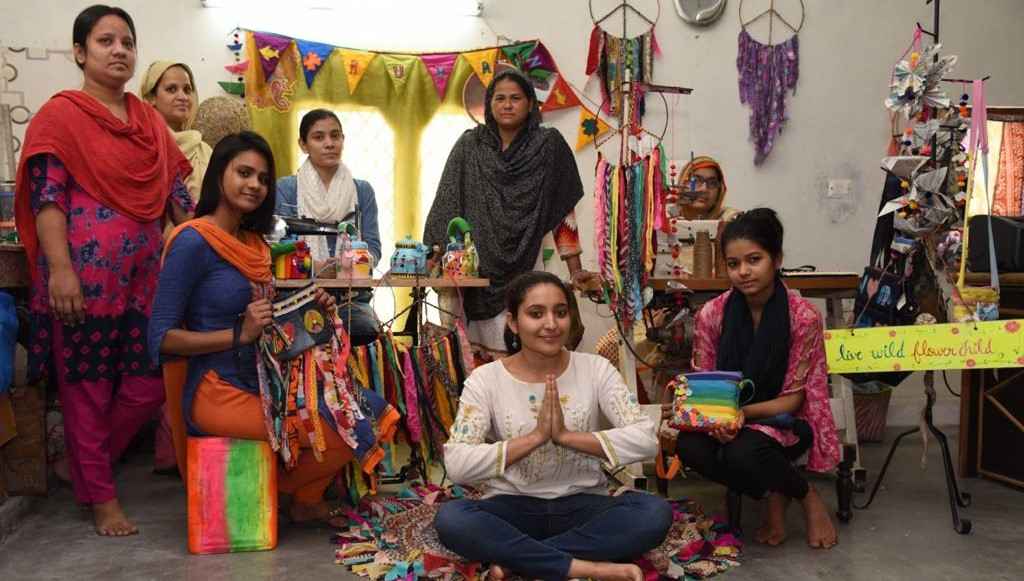
“We collect scrap from homes, factories, export houses, or even places in North Delhi where old clothes and post production scrap are just dumped. Sometimes, people courier their clothes to the studio in Delhi. Once we have our raw materials, we sort through the clothes and then begin the upcycling process wherein the women do stitching, sewing and handwork. What once was ‘old’ is now converted into rugs, bags, quilts and more,” she says.
People can then purchase products through the Use Me Works website.
They also offer factories a circular model. “We help these clothing units establish a circular model by upcycling the post-production scraps into a parallel line of merchandise. Some of the products developed in the past are home decor items, accessories and kitchen utilities.”
“In a month, 200 kg of waste is upcycled,” she says.
Saving the Earth, one stitch at a time
Meenakshi notes, “Upcycling can help people fix their relationship with their resources and connect them with nature. People who opt for upcycled products are not only stopping more waste generation, but are also consuming the existing waste which would have otherwise piled on somewhere in our landfills.”
Hariyali, who assists Meenakshi, says that being a part of an upcycling brand comes with a sense of fulfilment. “In an age where everyone seems to be interested in fast fashion, it is satisfying to work with an upcycling brand that has a positive motive.”.
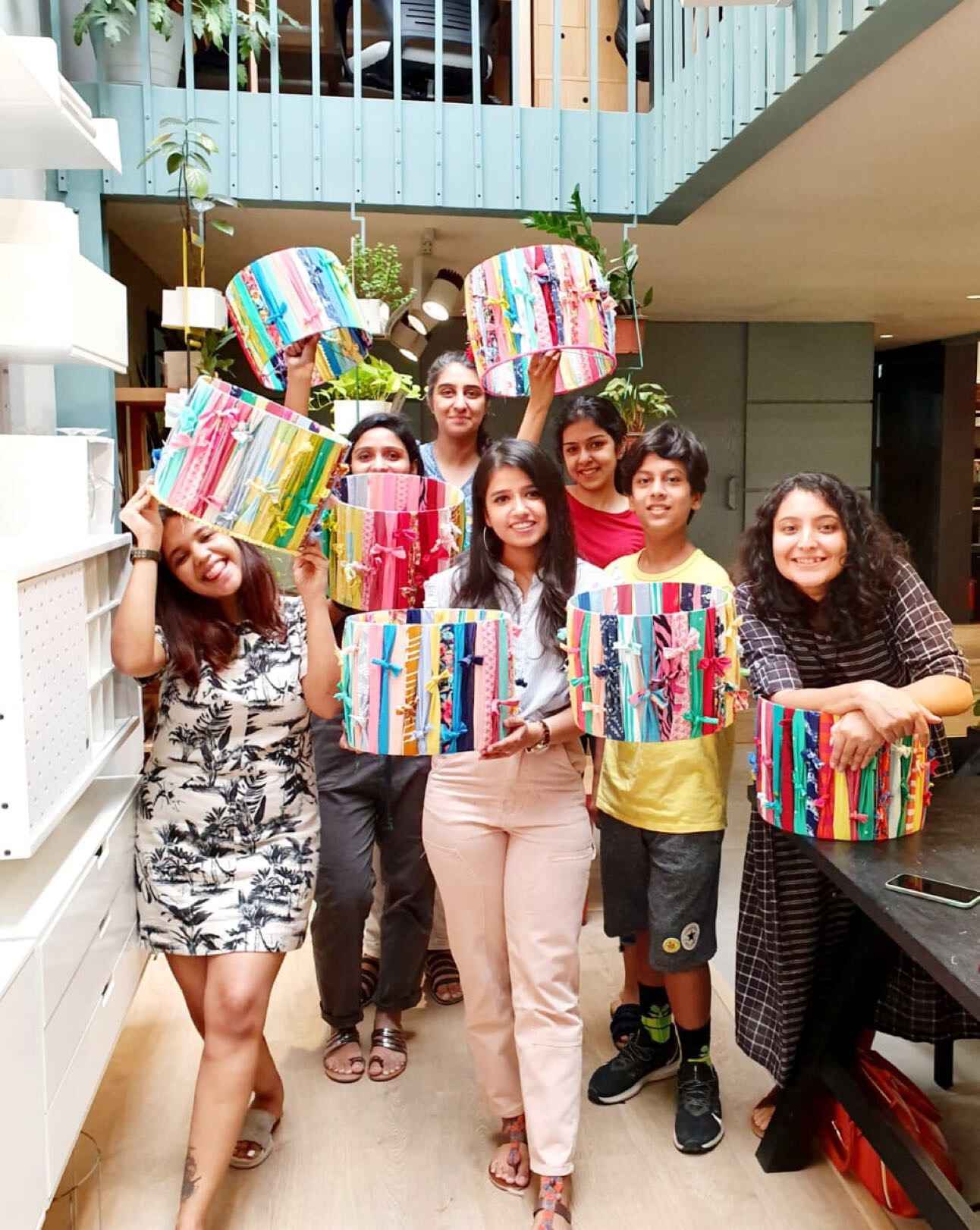
She adds, “While the idea of sustainable markets was not predominant a few years ago, people have begun realising the beauty of buying from local brands putting the planet before trends.”
Besides upcycling, Use Me Works also conducts workshops in schools wherein they have children make art and DIY out of the waste fabric. “These are fun DIY workshops with an intention to sensitise them towards waste materials, its usage as well as its disposal, and impact on the environment,” Meenakshi says, adding that they often have children coming back to them saying they no longer throw out things, as “nothing is really waste”.
The venture has customers from all over India and even globally — Singapore, United States, and United Kingdom — and sees around 200 orders a month, a number that Meenakshi says will only increase once people begin realising the impact of their endeavours.
Edited by Divya Sethu
No comments:
Post a Comment